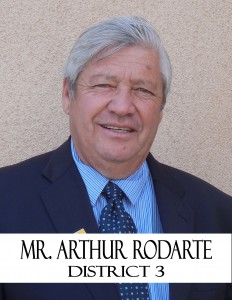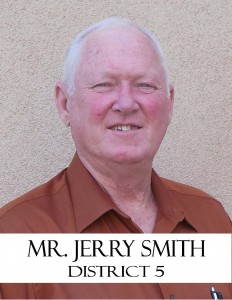Kit Carson Coop: Beneath the Surface and Under the Stars

As an intervenor in the Kit Carson Electric Cooperative (Coop) request for a rate increase I have signed a confidentiality agreement. The agreement, however, is full of holes and contradictions. For instance, certain information in my first set of interrogatories was denied due to “confidentiality.” After signing the agreement and submitting a second set of interrogatories, some of that same information was referred to as already having been surrendered in my first set. We intervenors are representing ourselves “pro-se” while the Coop is represented by and spending hundreds of thousands of dollars on the Cuddy-McCarthy law firm.
From a member’s perspective, I believe the Coop is using the PRC and its lawyers primarily 
as a way of covering up the failures of “diversification” (Call Center, Command Center, Propane, Internet, Broadband). Millions of dollars and thousands of hours have been spent on these projects for which not only this Coop but electric coops in general are culturally unsuited. Very simply, the Coops tend to perform well while distributing electricity because they have a monopoly and experience in electricity matters.
However, “diversification” requires competing in the so-called “market” with the profit-driven private sector.
KCEC’s CEO, Board of Trustees, and attorneys claim the desire to diversify goes back to the annual membership meeting of 2000 regarding Propane, Internet, etc. Though the members supported the CEO/Trustees’ proposal, they were merely responding to what amounted to a sales pitch and the alleged good intentions of KCEC re: “economic development.”
In a way the Coop blames the members for the inadequacies of the board and CEO. Now the members serve the elected representatives and CEO instead of the reverse.
In 2000 the Board of Trustees and CEO promised to cancel the Propane project if it wasn’t solvent at the end of five years. The time frame was repeatedly extended and, to make a long story short, the Coop doubled down on the entrepreneurial culture. The financial losses have been repeatedly subsidized by revenue from electricity sales and loans from RUS and utility banks. The muddled accounting procedures at the Coop appear designed to allow the CEO to rob Peter to pay Paul.
 In 2010, KCEC asked for their first rate increase in 25 years, according to CEO Reyes (though the G&T provider, Tri-State raised rates a number of times). That rate increase request of 2010 was approved but reduced by the PRC. The PRC, per pressure by the USDA/RUS grant and loan of $64 under the aegis of the American Recovery and Reinvestment Act of 2009 (ARRA), allowed the Coop to mortgage the assets of KCEC to collateralize the loans and grant to the federal government. The gold rush or the “Contracts for Cuate” program is over but the project is incomplete.
In 2010, KCEC asked for their first rate increase in 25 years, according to CEO Reyes (though the G&T provider, Tri-State raised rates a number of times). That rate increase request of 2010 was approved but reduced by the PRC. The PRC, per pressure by the USDA/RUS grant and loan of $64 under the aegis of the American Recovery and Reinvestment Act of 2009 (ARRA), allowed the Coop to mortgage the assets of KCEC to collateralize the loans and grant to the federal government. The gold rush or the “Contracts for Cuate” program is over but the project is incomplete.
I have a copy of a board resolution, signed by Secretary of the Board of Trustees’ Manuel  Medina in response to a request from RUS requiring the board to pass a resolution saying the board could or would borrow up to $134 million dollars. Contrary to claims of frugality, Medina confirms his role as the leading exponent of borrow and spend and incurring debt.
Medina in response to a request from RUS requiring the board to pass a resolution saying the board could or would borrow up to $134 million dollars. Contrary to claims of frugality, Medina confirms his role as the leading exponent of borrow and spend and incurring debt.
The Coop, reportedly owes about $100 million now, and wants to borrow $8 to $10 million more to complete the Broadband project, which needs, according to Reyes, about 5500 customers to break even. The Coop languishes well behind Century Link, Taos Net, and Comcast in terms of market share. In fact one wonders how many of those who want Internet connections don’t have it?
The Coop, according to the record also wants to invest another $33 million in electrical infrastructure upgrades, and has announced proposals to buy-out its contract with Tri-State, the electricity supplier for $38 million. And the KCEC members are due $37 million in Capital Credits, earned during the “good years.” A million here, a million there, adds up.
Who wants to loan money to KCEC at this point?
The Coop has not set aside the money owed the members, according to a 2011 Reyes affidavit but used the money, per Trustee policy, to keep the Coop afloat and continues to invest member money in pyrrhic projects like the Command Center folly, a virtually vacant $3 million building and/or Broadband, whose time, technologically speaking, has been usurped by the private sector and the changing technology: smart phone access to the Internet, etc.
The KCEC culture is substantially different from other Coops in New Mexico and the country at large in terms of its broad-based diversification. But it is similar to other Coops and even municipalities in terms of the ARRA Broadband awards, which awards exemplify a record of failure nationwide. In a moment of candor, since recanted, RUS’s economic development maven Terry Brunner told me and Jerome Lucero, another intervenor, that Kit Carson was the worst performing ARRA awardee in the country. Both Brunner and the Coop blame the “terrain” as if this mysterious factor was an “unknown” to local members and KCEC employees.
Similarly Coop Trustees blame Intervenors for their troubles today. Blame anybody but don’t look in the mirror.
In contrast to a run of 18 straight annual meetings where the Coop obtained a “quorum” of members and could transact official business, the last decade has seen declining interest by members during trustee elections and at annual meetings. Despite reducing the numbers (due to alleged shenanigans) last year necessary for a quorum, the Coop at this year’s annual meeting had a record low number of attendees, reportedly less than 300. The members are voting with their feet to stay away from elections and annual meetings, due to the Trustees’ and CEO’s failed policies and politics of denial.
Hope is on the Way
Thanks to testimony and probable recommendations, help is on the way from the expert staff at the PRC, who have analyzed the muddled accounting procedures of KCEC, wherein the Coop appears to lump in loans and income from all projects except the problematic Propane subsidiary (another story). Once “diversification” and other items are analyzed, the Coop’s benchmark or “tier” is higher than KCEC presented, meaning the “electric” side is more solvent than suggested by the CEO to Trustees, the public, and the PRC.
As some members and readers know, the proposed rate increase falls on low-income earners and conservation-oriented users of electricity. The rich get richer at lower rates by using more electricity. Go figure.
Staff is recommending the PRC approve half the rate request of $3,530,000 or $1,608,137. One of the staff says, “The proposed [Coop] rate is designed to discourage energy conservation and to correspondingly encourage energy use.” Contrary to the CEO’s presentation of himself as a “green energy” advocate, the Coop proposal rewards the wealthy and wasteful, while reducing rates for big users, including Chevron Mining’s ongoing water pumping project, which is expected to last forever since Chevron is a “superfund site.”
Trustees received fees and/or spent $3.9 million on travel during a nine-year period from

Art Rodarte: to New Orleans. Never missed a trip ih 30 years?
2005 to 2013, according to Reyes. Reyes receives reportedly $240,000 a year plus benefits and other fees from national organizations. Trustee Rodarte earns $600 per Tri-State meeting and Trustee Jerry Smith garners more fees for attending statewide meetings. If you see a Trustee in public at a meeting he is probably there to collect a fee but rarely makes a comment because he’s a member, quite frankly of the CEO’s rubber stamp board or in a state of denial about the debt-laden sinking ship.
Reyes and the Board constitute the indigenous 1% of Taos, a local group, who has prospered on the backs of the members. Many members and residents constitute the lower rings of poverty in the State of New Mexico, which state finishes last in all the good categories and first in all the bad categories nationwide. Even as the Coop pleaded dire straits and asked for a rate increase, they found the money to go to New Orleans just prior to Mardi Gras this year.

Jerry Smith: to New Orleans
So much for economic development, the Coop’s raison d’etre for “diversification.”
The PRC staff has ferreted out and dismissed expenses associated with advertising, donations, and diversification (though they didn’t mention the ill-fated folly or Command Center which will cost members, allegedly $3 million plus interest over the life of the $118,000 dollar a year 40 year loan).
The Staff also recommends “that the Commission launch an inquiry into the status of KCEC’s Community Solar Garden in order to establish its legitimacy.” (Editor’s bold). KCEC appears to be in violation of state statues re: its administration of various solar projects around the area because they have created a special class of users, once again, “at the detriment of the remaining members who are uncompensated for the delivering and billing services provided by the electric utility to the [Community Solar Garden] participants.”
Basically staff testimony confirms what members have long suspected about “diversification.” But staff also implies that it’s up to the “members” to correct the board. Apparently it is becoming more and more common to file class action lawsuits against Coops in an attempt to recoup capital credits.
The Paradox
What’s really sad aqui en Taos is the way the Board of Trustees has ignored their fiduciary duty and indulged CEO Reyes’ hubris or ego re: “diversification.”
Here’s the paradox for which nobody has an answer. The PRC will probably allow the Coop to raise rates per staff recommendations. But the PRC has no statutory jurisdiction over the various diversification projects. Once the Coop receives the rate increase, probably next year (the hearing before the examiner is in Aug. then the recommendations go to the full PRC board), the Trustees and CEO will just borrow more money to finance their failures but have no real plan for resolving the increasing cycle of borrow and spend and debt. So they will be back in front of the PRC in a couple of years asking for a rate increase.
Reyes’ s rosy projections about the future of Broadband are considered ludicrous. Even if completed, there’s no guarantee the Coop can break even operating Broadband/Telecom/Internet services. The pattern of failure and denial per the past 15 years speaks for itself. For what appear to be selfish reasons the Trustees and the CEO have betrayed the members’ trust. 